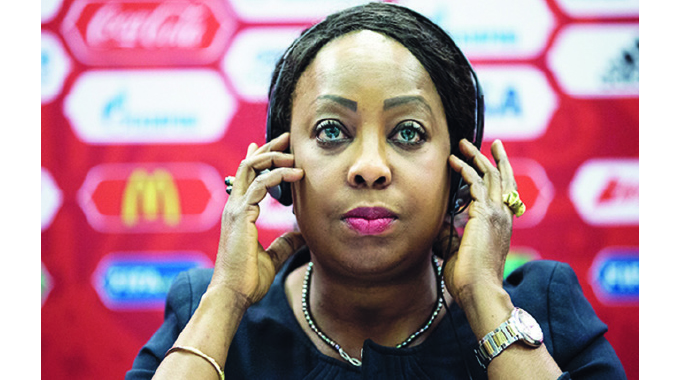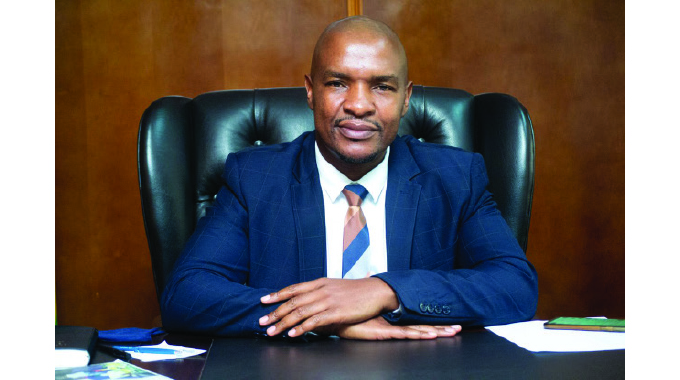Why FIFA haven’t cracked whip…Alleged harassment of women refs a sticking point

Robson Sharuko Senior Sports Editor
THE sensitivity and explosiveness of sexual harassment cases in world football is behind FIFA’s decision to take a cautious approach in their handling of the suspension of the ZIFA board.
These cases even brought the globe’s most glamourous women’s top-flight league to a temporary halt in October.
More than two weeks after the dissolution of the ZIFA leadership, FIFA have not yet resorted to their template to call for the reinstatement of the suspended board, or the country would be thrown out of the international football family.
Instead, FIFA officials have been having engagements with their Sports Commission counterparts, including a meeting which lasted more than two hours on Saturday, to find a way to resolve the crisis, sparked by the dissolution, of the ZIFA board.
In sharp contrast, the world football governing body took just four days after the suspension of the Kenya Football Federation leadership by their government last month,to intervene and call for the board’s reinstatement.
FIFA secretary-general, Fatma Samoura, wrote to Kenyan Sports Minister, Amina Mohammed, on November 15, just four days after she kicked out of the FKF leadership, demanding the reinstatement of the elected football leaders. “I have been made aware of the appointment of a so-called caretaker committee, together with its secretariat, in lieu of the KFK NEC,’’ Samoura wrote.
“I must highlight this appointment is contrary to our principles in which all our members are supported to independently manage their affairs.
“The situation could, therefore, lead to a ban on FKF by FIFA.’’
Suspended FKF president, Nick Mwendwa, threw in the towel on Monday, handing over authority to his deputy Doris Petra, claiming the boardroom battles, which have seen him being arrested twice, had taken their toll on his family.
“In light of the frequent arrests and detentions, which have adversely affected my family and personal business, and whilst I am confident I will be cleared of any wrong-doing in the end, I have asked my vice president Madam Doris Petra to assume all functions of the FKF president,” Mwendwa wrote, in his resignation letter.
“My decision has been arrived at with the federation’s best interest at heart.”
However, while FIFA have taken a hardline stance on Kenya, the world football controlling body have, so far, chosen a path of diplomacy in dealing with the drama unfolding in Zimbabwe football.
The sticking point, The Herald has authoritatively been told, lies in the sensitivity, and explosiveness, of the allegations, of sexual harassment, suffered by some local female referees, in this country.
The allegations formed part of the charges that were levelled against the suspended ZIFA board by the Sports Commission.
“The SRC is also in receipt of a report of alleged sexual harassment of female referees by key technical staff within ZIFA,’’ the statement by the sports regulator read.
“Despite several requests, for the matter to be decisively dealt with, ZIFA did not give the matter adequate attention in view of its gravity.
“Whereas the nation has made significant strides in empowering the girl child to be an active participant in sports, incidences of sexual harassment should be conclusively dealt with to enable a conducive environment for participation by all.’’
This, according to the SRC, could also have created a corporate culture within ZIFA were women are treated as inferior members of the association.
They accused the suspended ZIFA board of alleged “failure to address gender imbalances, relating to the treatment of female national teams, compared to their male counterparts in terms of allowances, up-keep and unfavourable operating conditions.’’
FIFA officials have chosen caution, according to sources, in dealing with the Zimbabwean issue mainly because of the allegations related to the sexual harassment of women referees.
“One of the things you have to bear in mind is the timing of the crisis, when the world is taking a stance against gender-based violence, and what has also been happening, within the corridors of FIFA, when it comes to such issues,’’ the sources said. “The halting of the national Women’s Soccer League in the United States recently, over similar issues, the axing of league commissioner, for turning a blind eye to complaints and the firing of a top coach, have brought these cases squarely on FIFA’s doorstep.
“The case of the former coach of Mongolia’s Under-15 girls’ team, who ended up being sanctioned by FIFA for sexually harassing, and physically assaulting team members, also generated a lot of the negative publicity, which the guys in Zurich do not want to see in football.
“It shouldn’t be lost on the game that things have changed and not only do we now have the #MeToo movement, as a powerful force, but the FIFA secretary-general, for the first time in the history of this organisation, is a woman.
“There was the case in Gabon, too, and against that background, FIFA have become sensitive to issues relating to the harassment of women and they know that such issues usually generate attention, across the entire globe, and they need to be careful, in terms of how they handle them.
“You must be aware that sponsors, too, are sensitive to all this and FIFA don’t want to be seen to be antagonising them by sending a message they are not taking a stance against such wayward behaviour, where women are treated as objects, by some very powerful men, in the game.
“FIFA have been burnt before, with FIFPRO coming out with guns blazing, just a few years ago, that the people in Zurich were not genuinely concerned with protecting the female constituency, of their game, and this left a huge stain on the world football leaders.’’
Apparently, the complaints related to the harassment of women referees, in this country, were sent to FIFA and the people who were making the allegations, were advised to use online portals, for filing such reports.
“This is not an easy thing to do, especially for a referee in Zimbabwe, and the online process ended up frustrating many of them who, rather than pursue their cases, decided to just watch from a distance,’’ the sources said.
“That could have been the end of their cases until similar issues started cropping up around the world and this, in a way, blew some wind into their campaign, to try and get some form of justice.
“That is the reason why you will find FIFA have not rushed to make any pronouncement, on the Zimbabwean situation, because they need to first establish if their decisions won’t be misconstrued to appear as if they dismissing, the sensitive allegations, related to the female referees, and condoning the behaviour of some outcasts.’’









Comments